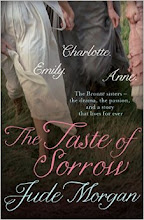"It is so hot that the flamboyant tree outside cracks to itself, as if already anticipating how it will feel to be on fire. The dogs are splayed out on the floor, wherever they can find bare cement, panting and creating wet pools with their dripping tongues. Our throats are papered with the heat; we sip at cups of cold, milky tea just enough to make spit in our mouths. The sky and air are so thick with wildfire smoke that we can’t see the hills, they are distant, gauzy shapes, the same colour as the haze, only denser. The colour is hot, yellow-grey, breathless, breathsucking colour. Swollen clouds scrape purple, fat bellies on the tops of the surrounding hills.”
So, I was quite excited to finally get round to her second family biography, the magically named Cocktail Hour Under the Tree of Forgetfulness. It does not disappoint. Her mother - the central figure - is a wonderfully three dimensional woman (nevertheless of a type), whose strength in the face of adversity that soon tips over into horror is both heartbreaking and inspirational.
This tidy little book is funny, terrifying and intelligently told; above all, it is true. Fuller weaves just the right amount of history into her personal tale that someone as hopelessly ignorant as myself about the arrival of the Afrikaner farmers in S.A. and the origins of the Mau Mau uprising is able to comprehend the situations her parents found themselves in, trying to raise a young family on their own little piece of a continent they love.
If it wasn't a place built on so much violence, and so deeply soaked in the blood of tribal hatred, I would be packing a carpet bag and taking my own Le Creuset pots to Africa right now. But I couldn't face what Nicola and Tim Fuller did, not for all the beauty of the Zambezi Valley or the stillness of "leopard-watched" nights. What Alexandra Fuller does, though, is make me feel I might have been there in some dream or past life, so vivid does that red soil become on reading her books. And for someone who never gets to travel as much as she wishes she could, that is the very best thing a book can do.

